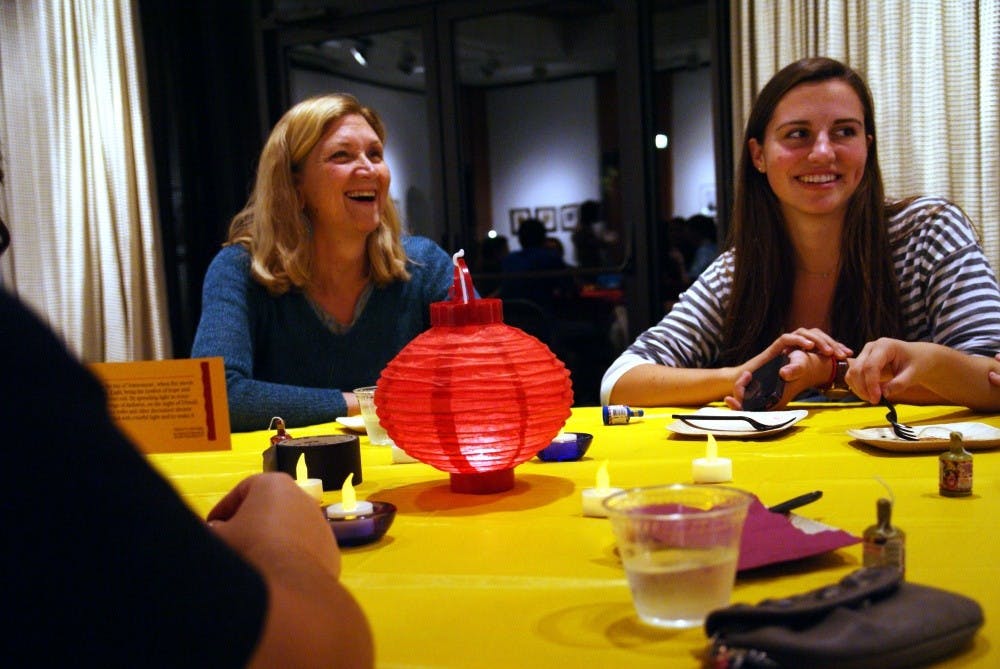The Isabella Cannon Room was aglow last week as Elon University held its first Diwali celebration to mark the last day in the Hindu calendar. Diwali is also known as the festival of lights and while festivities vary from family to family, often involves singing, music, treats, colorful lanterns and fireworks. It was celebrated on campus Oct. 27.
This year is the first year Elon has celebrated Diwali, according to Phil Smith, associate chaplain and director of Religious Life.
"I'd call this a first effort," Smith said. "We're helping people to understand another culture and for students of Hindi backgrounds to share with the community."
Jalebi, a sugary, syrupy coil of fried orange-colored gelatin and gajar halwa, a bright orange pudding rich with nuts and dried fruits, were the two desserts served to students who attended the celebration.
Sophomores Opal Patel and Priyanka Sundaram spoke briefly at the celebration about their family's traditions, which differ slightly, and answered questions from students curious about their customs.
"In India it's a big, big deal," Patel said. "At night, there are a bunch of fireworks going on. The day starts off where a lot of people will go to the temple and pay their respects and thank God. Diwali is the last day of the Hindu year so people will thank God for having a really good year and ask for blessings for the upcoming year."
Traditions vary from family to family based on which region of India they are from, Patel said, and while her family does not give presents on Diwali, Sundaram's does.
"My parents usually do a whole ceremony thing and then at night have a huge party and it's a lot of fun," Sundaram said. "I think of Diwali as like the Indian Christmas, which is cool because I celebrate Christmas, too, so I get two Christmases."
Diwali is always celebrated on the day of the new moon as a way to get rid of the darkness, and so people will decorate the inside and outside of their homes with lights and candles. The night before Diwali, people use colored sands or paint to create colorful patterns on their doorsteps to welcome God into their homes.
Diwali is celebrated during a period of a few days and each day is dedicated to something different. The dates vary from year to year because of the lunar calendar.
"In my family, the big thing we do is we have a very big prayer ceremony, where my mom cooks all these different kinds of food," Patel said. "I don't know how she does it. She usually spends the whole day cooking. So we'll have our close family and friends over and we'll have the prayer ceremony. The big thing about Diwali is the sweets and to have a good time."
Both of Patel's parents are Indian, but she was born in the United States and said she has not yet had an opportunity to visit India. She said she hopes to go soon and spend a full year there to experience first-hand the customs and traditions she has been practicing from afar.
Patel's favorite part of Diwali is the fireworks, she said, but she also enjoys the emphasis on spending time with friends and family and finds it challenging to be away at college for the celebration.
The event was held in the Isabella Cannon Room in the Center for the Arts and so many students participated that many of them had to sit on the floor. Patel said she was surprised by the showing and looks forward to continuing the tradition next year.
"I'm really happy that this happened," she said. "I'm really happy, because I know if this happened last year it would have been a great transition help. I'm definitely going to talk to Phil about helping plan it next year, maybe dance for it."


